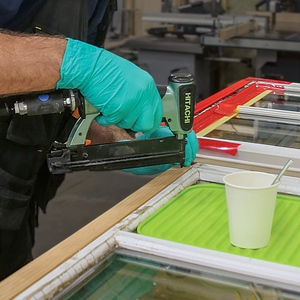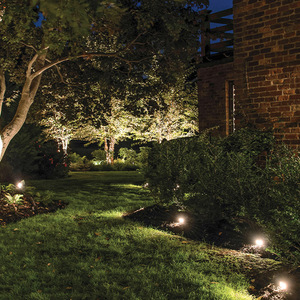*
Recently I went to use Tapcon screws to anchor some hangers to a concrete wall. I used the 3/16″ by 1.25″ hex-head screws in concrete (the concrete is good quality and over 30 years old).
I’ve used Tapcons in masonry before and no problems. The manufacturer states concrete is an acceptable medium but I couldn’t get the screws to drive to save my soul. Any help on how to do it right?
Thanks



















Replies
*
What do you mean when you say you could not get them to drive right? Does this mean you could not get them to go in all of the way? Did they strip the hole out when you snugged them up?
Are you using the correct size bit? Are you cleaning the dust out of the hole before driving the screw? Is the hole deep enough? Are you hitting aggregate before the hole is deep enough? If hitting aggregate its easiest to just drill a new hole? Are you using real Tapcon brand screws and a quality magnetic driver to prevent the screw heads from being rounded? Is you carbide percussion bit melting from excess speed and becoming dull?
I've used them for light work, attaching electrical boxes and conduit straps to concrete, and they work OK. I would not do any heavy duty work with them.
*Russell,In answer to your questions:Using hole size recommended by the manufacturer which is 5/32" hole for 3/16" shank Tapcons. They are genuine Tapcon brand. Overdrilled the hole depth by 1/2" as also recommended by the manufacturer. The dust was blown clean from each hole with compressed air. The carbide percussion bit did its job fine and cooly and is alive & well living in the tool box.Basically I just had an impossible time getting the screw to even start much less establish threading. Of nine holes I got three to start but couldn't drive those all the way in. Total failure in real terms.From the feed back of the hammer-drill used to drill the holes, yes, I did hit aggregate. Hell, the stuff is concrete after all. I guess I was under the misconception that the Tapcon would deform enough to handle aggregate, thus distinguishing its use in concrete from that in just masonry.Relocating the holes is not a very practicle option as I would like to precisely locate the hangers (I can tolerate the holes wandering off a little bit as is customary in drilling concrete). Somewhere after age 3, I lost my ability to see into concrete walls. This would make it a hit & miss exercise to drill a hole for a Tapcon screw. My concrete wall might look like Swiss cheese if indeed, Tapcon screws are that sensitive to aggregate. Sounds like I have the wrong fastener for the application.Thank you kindly for the insight. I might have to go back to some of the old standby systems for concrete. Was I the victim of misleading advertisement? Or perhaps I was expecting the fastener that is so convenient in masonry to be a miracle screw for concrete. Live and learn. Thanks again, Russell
*No disrespect Russell, but in the real world we shouldn't have to ask that many questions to properly use a product. I know sometimes it is necessary, but in the real world MOST people DON'T read labels. And it shouldn't take 5 yrs experience to use a "simple" concrete screw. I have had mixed success with Tapcons myself. I have had excellent success using the concrete bit provided with Tapcons, a piece of 14/2 electrical wire, just the black or white, long enough to reach the bottom of the drilled hole and sticking out of the pc to be fastened along with a #8 wood screw. Don't get me wrong, this is not a solution for hanging stuff from the ceiling of public buildings, but there are times..... SteveM
*You might be surprised how much two 16 sinkers driven into a 1/4" hole will hold. Wouldn't recommend it in shear but to simply hold something in place it works great.
*
I've had similar problems with Tapcons in hard concrete. Try chucking your #3 screew driver bit in a hammer drill and hammer drill it in. This sometimes works for me, but not in every case. Sometimes I have to try 2 or 3 times. Once in a while one will twist off so be careful.
*When trying to drive Tapcon screws into stubborn concrete, I have also experienced some problems. In some cases, dipping the fastener in motor oil will provide enough lubrication to ease it in, but it only works well enough about 50% of the time w/ a troublesome hole.
*Have any of you guys used the epoxy-set systems from rawl and hilti? I recently used this system to set 8 3/4 anchor rods for an underground tank. These systems are tough! I tightened a few of the bolts myself, that evening. It sets fast and can actually be used under water! The tapcons work great in block, though.-Rob
*
Hilti also makes a masonry screw anchor system with a tri-lobular thread cuting design and setting tool (KWIK-CON11+) I have not used them yet but have a job where i plan on trying them.
I hope they will work the way most hilti systems do.hope this helps
*I think they should change the name to TapBlock, because that's all they're good for! If you've got good concrete, these things are nothing but trouble. I've noticed that many manufactured items that are meant to be attached to concrete are coming with the drive-in pins with the offset shank at the tip. These things REALLY hold, but you can't remove the fixture unless you grind the top off of the pin.
*
The device with the offset shank is the Rawl Spike, and it's available in a threaded version that allows removal of the fixture if there's room to apply a nut to the spike.
I've had little problems with Tapcons around the house, but it's mostly been with block and patio grade concrete. Certainly nothing that's cured for thirty years. I wouldn't broad brush Tapcons as junk, but I'd recognize their limitations. I do buy Tapcons and not the Star lookalike sold at home centers. There is a difference in the cutting thread design of each.
*
I asked about the aggregate because my wimpy hammer drill will not force the bit through the rock. It works just fine through the sand and cement portion, just not the actual real live rock (aggregate). If I hit aggregate before the hole is drilled deep enough then obviously the hole is not deep enough and the screw will not go in far enough.
But you are saying you cannot even get the screw to start in the hole? Are you absolutely sure you are using the 3/16 screws? Not the 1/4" screws? I know the 5/32 bit comes with the 3/16 screws but could you somehow have gotten 1/4 screws? Its hard to imagine the screw not even starting in the hole.
*GS,I also find Tapcons to be finicky in concrete. Lately though, I've been using Alligator Solid Wall Anchors with good success. If you believe the tech specs in the McFeely's catalog, and depending on the actual fastener, the Alligator anchor has better pullout resistance that Tapcons.Alligators seem to be priced about the same as Tapcons if you are buying quantities of 100. But, of course, you still have to buy a fastener.
*The threading on tapcons..seems to have softened...significantly...and the product does not seem...to drive or fasten as well as it did...We have better luck with the 1/4 " tapcon..and usually back up the installation with construction adhesive...between member and concrete...DN
*
Recently I went to use Tapcon screws to anchor some hangers to a concrete wall. I used the 3/16" by 1.25" hex-head screws in concrete (the concrete is good quality and over 30 years old).
I've used Tapcons in masonry before and no problems. The manufacturer states concrete is an acceptable medium but I couldn't get the screws to drive to save my soul. Any help on how to do it right?
Thanks